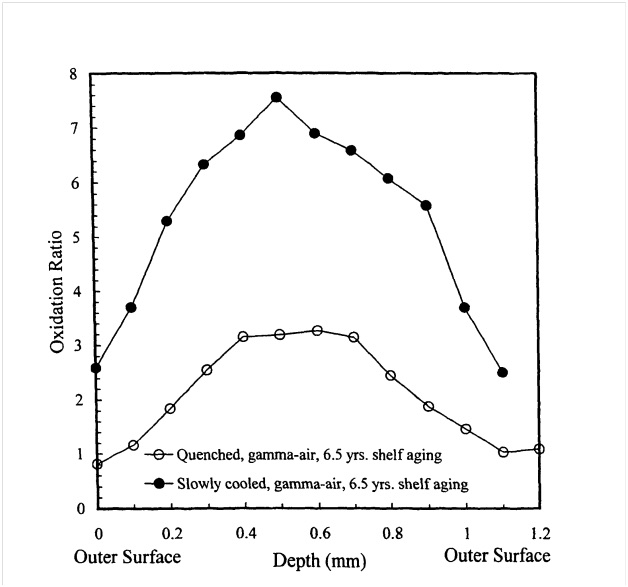Fort Wayne, Indiana – Patent attorneys for Orthopaedic Hospital of Los Angeles, California (the “Hospital”) filed a lawsuit in the Central District of California alleging that DePuy  Orthopaedics, Inc. of Warsaw, Indiana (“DePuy”) infringed Oxidation-Resistant and Wear-Resistant Polyethylenes for Human Joint Replacements and Methods for Making Them, Patent No. 8,658,710, which has been issued by the U.S. Patent Office. The lawsuit was transferred to the Northern District of Indiana pursuant to a joint stipulation by the parties.
Orthopaedics, Inc. of Warsaw, Indiana (“DePuy”) infringed Oxidation-Resistant and Wear-Resistant Polyethylenes for Human Joint Replacements and Methods for Making Them, Patent No. 8,658,710, which has been issued by the U.S. Patent Office. The lawsuit was transferred to the Northern District of Indiana pursuant to a joint stipulation by the parties.
The Hospital, located in Los Angeles, is an independent nonprofit charitable organization that treats children with musculoskeletal disorders and conducts scientific research aimed at improving orthopaedic materials, implants, surgical instrumentation, and surgical techniques.
At issue in this Indiana patent lawsuit is United States Patent No. 8,658,710 (the “‘710 patent”), which was issued on February 25, 2014. The Hospital asserts that it is the owner of the ‘710 patent, and that it possesses the exclusive right to bring suit for infringement of the patent.
The Hospital contends that DePuy is infringing and has infringed the ‘710 patent by making, selling, offering for sale, and using infringing products, including but not limited to DePuy’s AOX Antioxidant Polyethylene for Sigma and LCS Rotating Platform Systems. It is also claimed that DePuy’s infringement of the ‘710 patent has been and continues to be willful, deliberate, and/or objectively reckless.
The Hospital further asserts that DePuy has known of the ‘710 patent since at least February 25, 2014, when the patent issued. It also states that DePuy had constructive notice of the ‘710 patent by operation of law, as the Hospital and any of its predecessors-in-interest have complied with all marking requirements of 35 U.S.C. § 287.
A single-count complaint asserting patent infringement was filed by California patent lawyers for the Hospital. The Hospital asks that the court:
• Adjudge that DePuy has infringed and is infringing the ‘710 patent;
• Preliminarily and/or permanently enjoin DePuy and its affiliates and agents from further infringement, including inducement and contributory infringement, of the ‘710 patent;
• Award damages for willful infringement of three times the damages so determined, as provided by 35 U.S.C. § 284, together with interest;
• Order an accounting of all accrued damages;
• Award any supplemental damages to the Hospital;
• Award the Hospital their costs and, where appropriate, reasonable attorneys’ fees under 35 U.S.C. § 285; and
• Award compensatory damages to the Hospital, together with interest.
Practice Tip:
The question of willfulness in the context of patent infringement consists of two elements: (1) an objective element that is often, but not always, a question of law, and (2) a subjective element that is inherently a question of fact, to be decided by the jury.
Under the first prong, if an “accused infringer’s position is susceptible to a reasonable conclusion of no infringement,” the infringer’s conduct cannot be objectively unreasonable. Conversely, an action is objectively unreasonable if the infringer acted despite an objectively high likelihood that its actions constituted infringement of a valid patent.
When considering the second prong — the element of subjective willfulness — fact-finders should consider: (1) whether the infringer copied the patentee’s commercial products; (2) whether the infringer presented evidence that it obtained legal opinions of patent counsel to justify its infringing actions; (3) whether the infringer attempted to avoid infringement by designing around the patents; and (4) whether the infringer acted in accordance with the standards of commerce.
The case was filed by Luke L. Dauchot, Nimalka R. Wichramasekera and Benjamin A. Herbert of Kirkland & Ellis LLP. The case was assigned to District Judge Theresa L. Springmann and Magistrate Judge John E. Martin in the Northern District of Indiana and assigned Case No. 3:14-cv-00608-TLS-JEM.
 Indiana Intellectual Property Law News
Indiana Intellectual Property Law News

